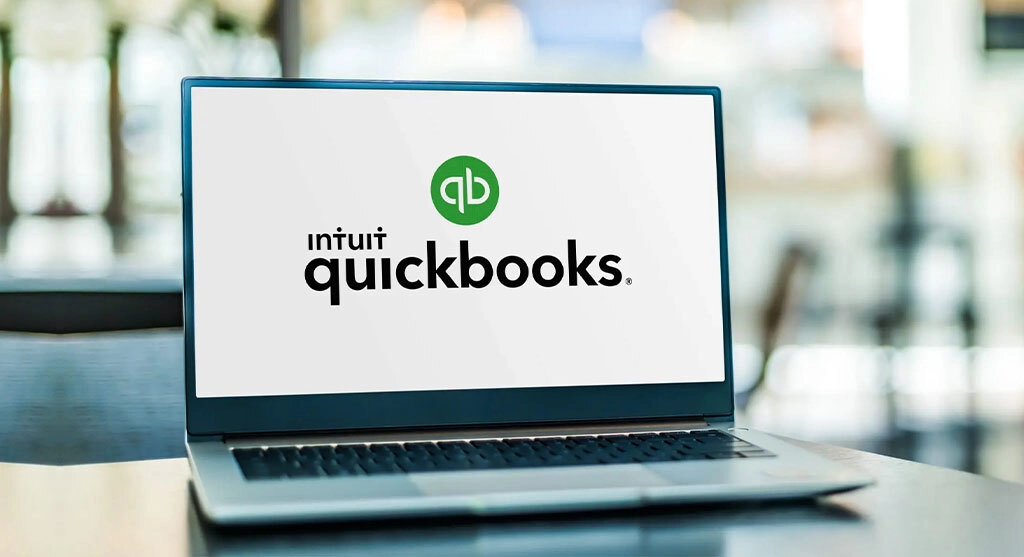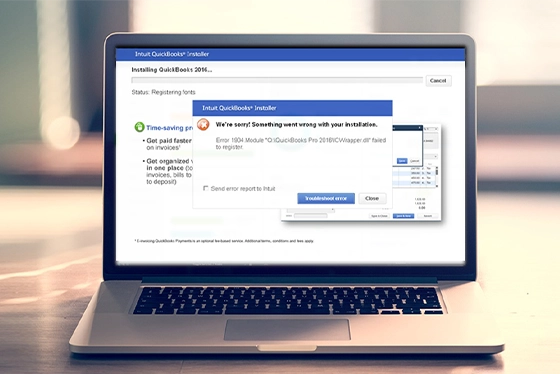QuickBooks plays a critical role in managing financial records, payroll, and business transactions. When its data becomes corrupted or inaccessible, daily operations can quickly come to a halt.
Even a small error in a QuickBooks company file can lead to missing invoices, inaccurate balances, or loss of transaction history. These issues not only disrupt workflow but also risk compliance and reporting accuracy.
Understanding the reasons behind QuickBooks data failure is the first step to protecting vital financial information and maintaining business continuity.

Understanding QuickBooks Data Files
A QuickBooks company file (QBW) holds your most important financial data from invoices and payments to employee records and tax details. Each entry made in QuickBooks is stored in this structured database, ensuring your business information remains organized and accessible.
To support this file, QuickBooks also generates additional components like TLG (Transaction Log) and ND (Network Data) files. These help synchronize user activity and maintain consistency across multiple sessions.
Because all key financial operations rely on these files, any corruption or mismanagement within them can lead to serious data loss or system errors.
Common Reasons for QuickBooks Data Failure
QuickBooks data failures can occur due to both hardware and software problems. Below are the most common causes:
Hardware Malfunctions: Disk errors or failing drives can corrupt company files stored on your system or server.
Improper System Shutdowns: Power outages or forced shutdowns interrupt QuickBooks processes, damaging active files.
Network Instability: Connection drops during multi-user sessions may cause incomplete data transactions.
Outdated or Conflicting Software: Running older QuickBooks versions or conflicting applications can trigger data corruption.
Improper Backup Practices: Unverified or incomplete backups often fail during restoration.
Learn more about how database damage occurs in our post on Database Corruption.

Signs Your QuickBooks File Is Corrupted
Recognizing early signs of file corruption can help prevent larger data losses. Some common indicators include:
Frequent Error Messages: QuickBooks may display unexpected errors or crash during routine tasks.
Slow Performance: Opening or saving files takes longer than usual, especially in multi-user mode.
Missing or Duplicated Entries: Transactions, invoices, or account balances appear inaccurate or inconsistent.
File Access Problems: The company file fails to open, or QuickBooks shows a “Not Responding” status.
Backup Failures: Scheduled or manual backups repeatedly fail or generate warning messages.
Spotting these symptoms early allows you to take immediate steps before the issue worsens.
How to Reduce the Risk of Data Failure
Preventing QuickBooks data failure starts with consistent maintenance and safe handling of your files. Regularly update QuickBooks and your operating system to ensure compatibility and stability. Outdated software versions often cause unexpected file conflicts.
Perform verified backups on external drives or secure network locations. Avoid working directly from unstable network connections, as interruptions can damage company files.
It’s also essential to check disk health regularly and replace failing drives before they cause data loss.
For a deeper look at long-term prevention strategies, visit our guide on Data Loss Prevention.

When Professional Recovery Becomes Necessary
If your QuickBooks file becomes inaccessible or continues to show errors after basic troubleshooting, professional recovery is the safest next step.
Rebuilding or restoring a damaged file without expertise can lead to permanent data loss.
At this stage, stop using the affected system to prevent overwriting critical records. Data recovery specialists can extract and rebuild your financial database using secure methods that preserve integrity.
Professional help is especially crucial for businesses that rely on accurate financial reporting. Learn how specialists handle business-critical cases in our post on Business Data Recovery.
Fast turnaround times for business-critical data
QuickBooks Data Recovery Services by RAID Recovery Services
At RAID Recovery Services, we specialize in restoring corrupted or damaged QuickBooks company files, including QBW, ND, and TLG formats. Our engineers perform secure diagnostics to identify the root cause of failure and recover vital financial data without compromising accuracy.
We use advanced recovery tools in controlled environments to handle complex database corruption, missing records, and synchronization issues. Whether the damage is logical or caused by hardware failure, our team ensures the highest recovery success rates.

Conclusion: Protecting Your Financial Data
QuickBooks simplifies financial management, but its data remains vulnerable to corruption and hardware failure. Understanding common causes and recognizing early warning signs can help you take preventive action before data loss occurs.
When problems arise, professional recovery is the most reliable way to restore critical records safely.
At RAID Recovery Services, we help businesses regain access to their QuickBooks data quickly and securely.
Our specialists combine technical expertise with proven recovery methods to ensure your financial information remains accurate and protected.
Trust the experts with proven results
Frequently Asked Questions
What causes QuickBooks data failure?
QuickBooks data failure can result from hardware malfunctions, sudden shutdowns, network errors, or corrupted software components. These issues damage the company file, making data unreadable or inaccessible.
How can I tell if my QuickBooks file is corrupted?
Common signs include frequent error messages, missing transactions, backup failures, or the inability to open your company file. Slow performance and inaccurate balances are also warning indicators.
Can I fix a corrupted QuickBooks file myself?
Basic rebuild tools may work for minor issues, but severe corruption requires professional help. Attempting repairs without expertise can cause additional data loss or file damage.
How can I prevent QuickBooks data corruption in the future?
Maintain regular verified backups, keep your software updated, and avoid force-closing the program. Using reliable storage hardware and stable networks also reduces the risk of file corruption.
Who should I contact for professional QuickBooks data recovery?
Reach out to RAID Recovery Services for expert QuickBooks recovery. Our specialists can safely restore corrupted QBW, ND, and TLG files using secure recovery methods.